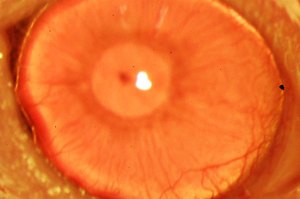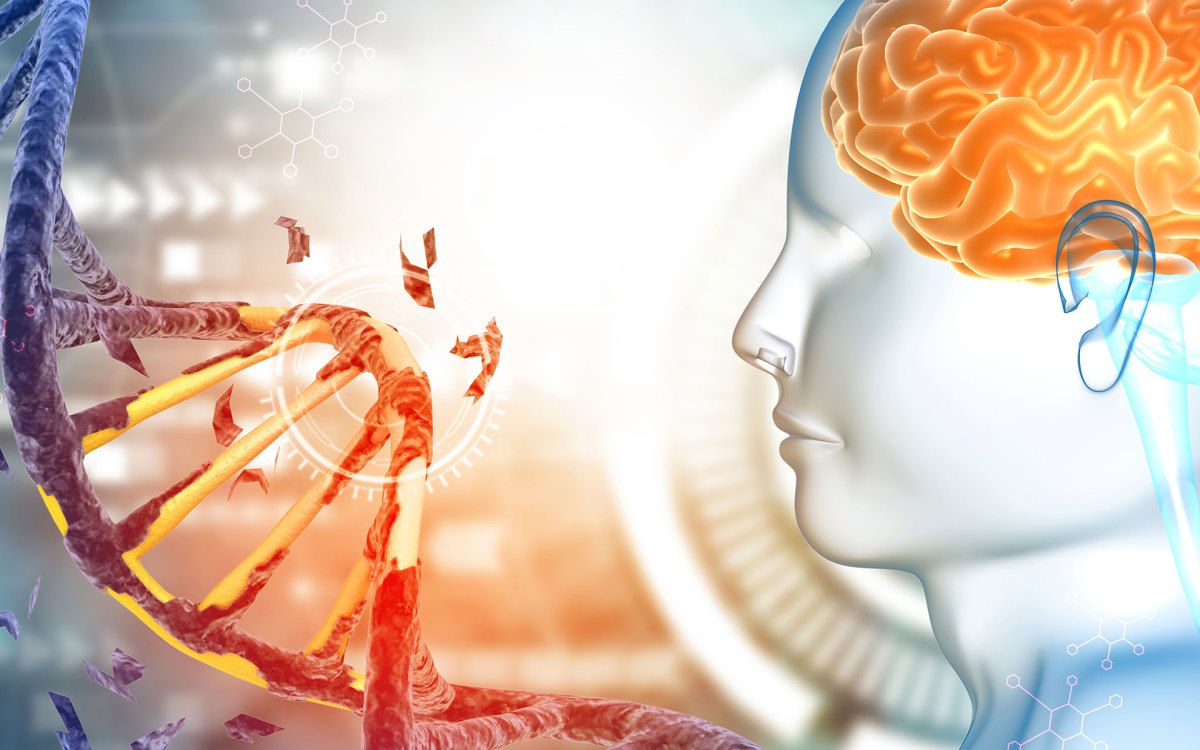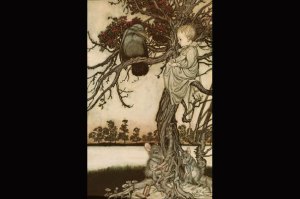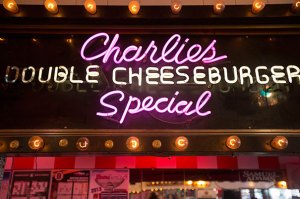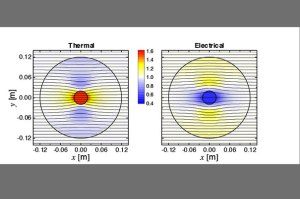All articles
-
Arts & Culture
Behind ‘Peter Pan’
The American Repertory Theater (A.R.T.) will stage the premiere of “Finding Neverland.” The new musical, about the real-life genesis of J.M. Barrie’s groundbreaking work “Peter Pan,” runs from July 23 through Sept. 28.
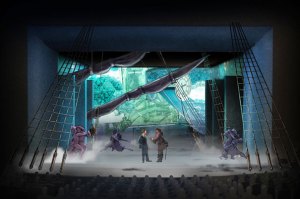
-
Arts & Culture
Photographic treasures
Earlier this year, photograph conservators from the State Hermitage Museum in St. Petersburg, Russia, visited Harvard and shared some treasures held by the Hermitage, many never before seen in the West. Recently, they shared several of these images in digital format.

-
Arts & Culture
Tracking Fritz Lang
The Harvard Film Archive is celebrating the work of Fritz Lang with a retrospective running through Sept. 1.
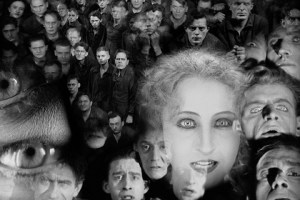
-
Campus & Community
Art historian Seymour Slive, 93
Seymour Slive, Gleason Professor of Fine Arts Emeritus at Harvard and one of the world’s leading authorities on 17th-century Dutch painting, died in June at the age of 93. Slive had been battling cancer, but was present at Harvard’s May Commencement, where he received an honorary doctor of arts degree.
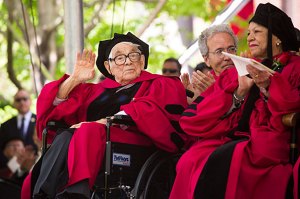
-
Campus & Community
“Many Rivers to Cross” nominated for an Emmy Award
On the heels of receiving a Peabody Award, it has just been announced by the National Academy of Television Arts and Sciences that “The African Americans: Many Rivers to Cross…
-
Science & Tech
Scholarly access to all
Digital Access to Scholarship at Harvard, a free and open portal for the University’s peer-reviewed literature, is drawing more worldwide downloads than ever.
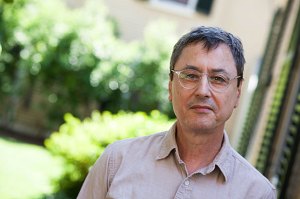
-
Nation & World
The price is right
Urban demographic patterns in the United States often defy logic, but a new research paper co-authored by Harvard Kennedy School Professor Edward Glaeser is shedding light on why many Americans continue to move to cities that are on the downturn.
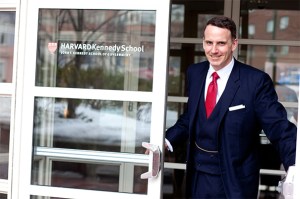
-
Health
Viewing how neurons work
A new technique for observing neural activity will allow scientists to stimulate neurons and observe their firing pattern in real time. Tracing those neural pathways can help researchers answer questions about how neural signals propagate, and could one day allow doctors to design individualized treatments for a host of disorders.
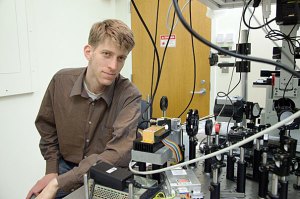
-
Health
Sizing up bacteria
A new theoretical framework outlined by a Harvard scientist could help solve the mystery of how bacterial cells coordinate processes that are critical to cellular division, such as DNA replication, and how bacteria know when to divide.
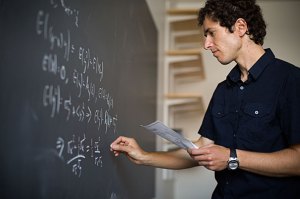
-
Health
Antibody halts cancer-related wasting condition
New research raises the prospect of more effective treatments for cachexia, a profound wasting of fat and muscle that occurs in about half of all cancer patients, increasing their risk of death. Harvard Professor Bruce Spiegelman demonstrated that symptoms of cachexia in mice improved when given an antibody that blocked the effects of a protein…
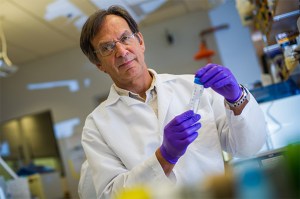
-
Campus & Community
A dream, ‘quietly imagined,’ come true
Rakesh Khurana became dean of Harvard College on July 1. On his first official day on the job, he reflected on the College’s power to transform undergraduates, and as a result to change society for the better.
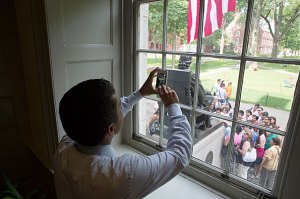
-
Nation & World
The latest violence in the Middle East
Following the July 9 airstrikes, Stephen M. Walt, the Robert and Renee Belfer Professor of International Affairs at the Harvard Kennedy School, discusses the factors behind this latest outbreak of violence between Israel and Palestine and what the international community can do about it.
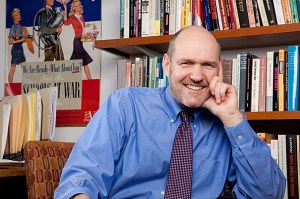
-
Science & Tech
The mess left by stress
A new report says many Americans are feeling high levels of stress, and a forum addressed how they might deal with it.
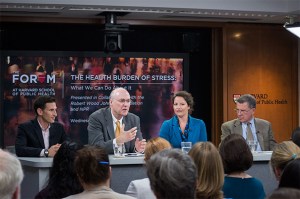
-
Health
Vasectomy may increase risk of aggressive prostate cancer
Vasectomy is associated with a small increased risk of prostate cancer, and a stronger risk for advanced or lethal prostate cancer, according to a new study from Harvard School of Public Health.
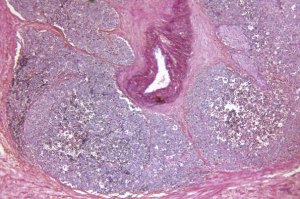
-
Nation & World
Academic boot camp
Harvard President Drew Faust welcomed to campus the Warrior-Scholar Project, an academic boot camp for veterans thinking of applying to college, while Professor Harvey C. Mansfield Jr. introduced the students to the two works he considers seminal to understanding American politics.
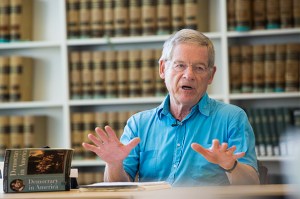
-
Health
Obesity risk stronger among siblings
A new study found that two-child families present five times more risk of sibling obesity than single-child homes with an obese parent, which doubles the risk. Obesity risk is even stronger among same-gender siblings.
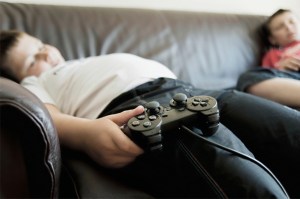
-
Nation & World
Renewing urban renewal
Edward Glaeser, an economics, government, and public policy expert at Harvard Kennedy School, and Jerold Kayden, an urban planning and design professor at the Graduate School of Design, discuss findings from a new Brookings Institution study on the rise of innovation districts across the nation.
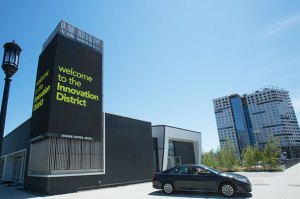
-
Arts & Culture
Early experiments in catching the eye
A new exhibit at the Business School illustrates the rise in America of artful, profit-making, culture-shaking advertising from 1865 to 1910.
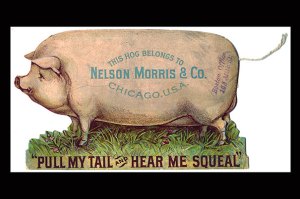
-
Campus & Community
Filmmaker Robert Gardner, 88
Robert Gardner ’48, A.M. ’58, the noted anthropological filmmaker who founded the Peabody Museum’s Film Study Center, died of cardiac arrest at the age of 88.
-
Nation & World
‘The Children We Mean to Raise’
In this edition of the EdCast, Harvard Graduate School of Education senior lecturer Richard Weissbourd discusses the findings in the recent report, “The Children We Mean to Raise.” What messages are adults sending children without even knowing it?
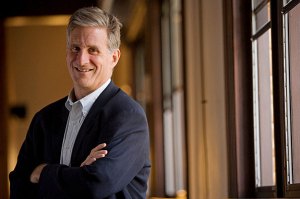
-
Campus & Community
Energy research wins grant
Harvard chemist Cynthia Friend has been awarded a major center grant from the U.S. Department of Energy’s Basic Energy Sciences’ Energy Frontier Research Centers program, which is designed “to accelerate the scientific breakthroughs needed to build the 21st-century energy economy.”

-
Campus & Community
Experiments in learning
Researchers gave Boston students some lessons in scientific method during an event at the Hennigan Elementary School in Jamaica Plain.
-
Nation & World
Falling fertility rates
For the past several years, Mary Brinton, Radcliffe fellow and chair of Harvard’s sociology department, and a team of collaborators have been exploring declining fertility rates in postindustrial societies.
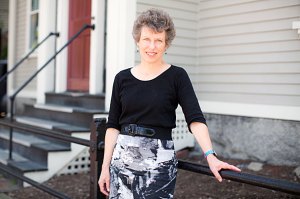
-
Campus & Community
Undersea life, clear as glass
The Harvard Museum of Natural History has opened a permanent exhibition of the glass sea creatures created by famed artists Leopold and Rudolf Blaschka more than a century ago.
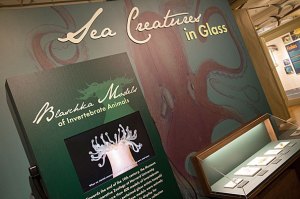
-
Campus & Community
Q&A with Harvard’s Title IX officer
In a question-and-answer session, Harvard’s first Title IX officer, Mia Karvonides, discusses the new University-wide policy and procedures in that area.
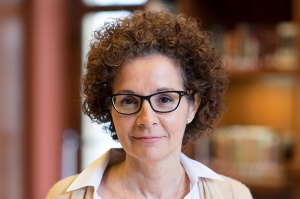
-
Campus & Community
A new sexual assault policy
Harvard University has unveiled a University-wide policy and set of procedures to prevent sexual harassment, including sexual violence related to gender, sexual orientation, or gender identity.
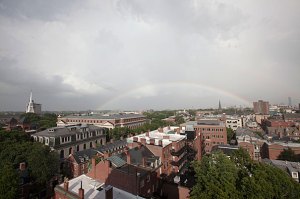
-
Health
New way to regrow human corneas
Harvard-affiliated researchers have identified a way to enhance regrowth of human corneal tissue to restore vision, using a molecule that acts as a marker for hard-to-find limbal stem cells.
